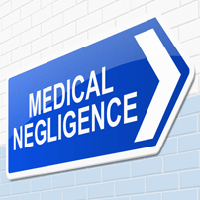How Surgeons Make Decisions in Emergency Situations
August 29, 2018 Researchers from the Johns Hopkins Hospital and the Medical College of Wisconsin conducted a study to determine how surgeons make important decisions about surgical interventions, and how their decisions impact their patients. The study was based on interviews with 20 hospital-based surgeons, including trauma surgeons, vascular medicine surgeons, and surgical oncologists. They found that there are several factors that influence their decision-making. However, most revealed that they felt pressure to operate in emergency situations, regardless of whether the patient would benefit from the procedure.
Researchers from the Johns Hopkins Hospital and the Medical College of Wisconsin conducted a study to determine how surgeons make important decisions about surgical interventions, and how their decisions impact their patients. The study was based on interviews with 20 hospital-based surgeons, including trauma surgeons, vascular medicine surgeons, and surgical oncologists. They found that there are several factors that influence their decision-making. However, most revealed that they felt pressure to operate in emergency situations, regardless of whether the patient would benefit from the procedure.
According to the Assistant Professor of Surgery at the Johns Hopkins University School of Medicine, making the decision to perform a surgical decision based on the risks versus the benefits is never easy. However, they become even more difficult and complicated in an emergency. There are limited tools available that can effectively and objectively measure these types of decisions. This study was designed to help better understand the thought process that the surgeon goes through during these difficult situations.
Study Method
Co-authors of the study conducted face-to-face interviews with 20 surgeons who participated. All surgeons practiced at Johns Hopkins Hospital and the Medical College of Wisconsin. Eighteen of the 20 surgeons were white males. The average age was 45 and the average number of years the surgeons were in practice was nine. Each surgeon was asked to name the most important thing to consider when deciding whether to perform surgery on a patient who is otherwise unlikely to survive or has an acute medical problem, like a ruptured abdominal aorta. The surgeons were presented with two hypothetical scenarios, and 13 questions about what they would do and why.
After the interviews were complete and the researchers analyzed the surgeons’ answers, they found that the following five themes emerged:
- The importance of the surgeons’ judgement
- The need for surgeon introspection
- The pressure to operate, whether it came from the surgeon, the patient or their family, from colleagues, financially, or emotionally
- The financial, emotional, and medical cost of operating
- Uncertainty surrounding the decision
One surgeon shared that there is a feeling that the cut is the cure, and that surgeons feel an intense pride in what they do. Another said that surgeons find it difficult to accept that a situation is futile. Saying no to operating goes against the grain. Some believe that objective tools can help assess risk, making it easier for surgeons to make patient-centered decisions, even in emergency situations. Ultimately, the goal is to provide surgeons with the tools to advise against surgery if the risks outweigh the benefits.
Baltimore Medical Malpractice Lawyers at LeViness, Tolzman & Hamilton Advocate for Victims of Medical Negligence
If you or a loved one has been injured during a surgical procedure, do not hesitate to contact the Baltimore medical malpractice lawyers at LeViness, Tolzman & Hamilton. We will conduct a thorough investigation of your case and determine who is responsible for your injuries. Our experienced team will obtain the maximum financial compensation you deserve, ensuring that your legal rights are always protected. To schedule a free consultation, call us today at 800-547-4LAW (4529) or contact us online.
Our offices are located in Baltimore, Columbia, Glen Burnie, and Towson, allowing us to represent medical malpractice victims in Maryland, including those in Anne Arundel County, Baltimore County, Carroll County, Harford County, Howard County, Montgomery County, Maryland’s Western Counties, Prince George’s County, Queen Anne’s County, Southern Maryland, and the Eastern Shore, as well as the communities of Catonsville, Essex, Halethorpe, Middle River, Rosedale, Gwynn Oak, Brooklandville, Dundalk, Pikesville, Nottingham, Windsor Mill, Lutherville, Timonium, Sparrows Point, Ridgewood, and Elkridge.






